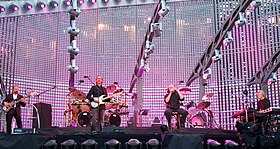 |
| This and other images linked from Wikipedia. |
I. Intro
II. Overview
III. Studio Albums
From Genesis to Revelation, 1969
Their debut album shows a group of youngsters trying to find their voice. At the time, their sound was steeped in acoustic hippie folk stuff. They added some orchestral arrangements, but the songs themselves were .. I dunno. Unremarkable.
Trespass, 1970
Despite the first album not really going anywhere commercially, the band went pro, bought "real" instruments, and started gigging. They departed with their first manager/producer, and started finding their own sound. The resulting album is more identifiably Genesis, mixing pastoral acoustic bits with harder rock, driven by Anthony Phillips's distorted guitar and Tony Banks's Hammond organ. They ventured further into unusual lyrical territory with Peter Gabriel's burgeoning theatrical style. Songs were allowed to stretch out, no longer confined to narrow goals of being successful as singles.
Nursery Cryme, 1971
Gigging proved to stressful for Phillips, and he ended up leaving. They cemented the guitarist and drummer positions with Steve Hackett and Phil Collins, respectively. Hackett brought in innovative playing and imaginative songwriting, and Collins brought a competent groove. As a band, they pushed their sound and creativity even further, with more theatrical story songs, elaborate and dynamic compositions, and more varied sounds.
Foxtrot, 1972
The band were getting more confident in their abilities, and more comfortable with each other, and pursued their emerging prog-rock sound even further. From majestic Mellotron swells, to gentle acoustic bits, to widdly organ riffing, to literally apocalyptic musical climaxes, to extremely detailed and layered playing, this is peak Prog Rock. Peter Gabriel went all-in on the theatrics at this point, adding a new dimension to their live shows. The (mostly) side-long epic "Supper's Ready" is a bona-fide prog-rock classic.
Selling England by the Pound, 1973
The band started seeing some commercial success, having broken through States-side, and kept pursuing their symphonic rock sound. Englishness permeates much of the record, in sound and in subject matter. Again, their sound varies from acoustic-driven passages, to jammy tradeoffs between Hackett's guitar and Banks's various keyboards, to theatrical silliness. "Firth of Fifth" features a classic Banks piano intro and a classic Hackett guitar solo.
The Lamb Lies Down on Broadway, 1974
A Trick of the Tail, 1976
Gabriel left Genesis after the tensions of recording and touring The Lamb and his personal life became too much. The band soldiered on, writing new material. After failing to find a satisfactory new full-time singer, Collins was persuaded to lay down some vocals, and ... the rest is history.
Wind & Wuthering, 1977
After Trick and the subsequent tour (with Bill Bruford filling in on drums) were well received, they kept on going--there were no brakes the Genesis train, though plenty of Banks, gahaha~. Though they continued in the symphonic rock direction as the previous record, the album is a bit more dynamic and varied, despite the monochromatic cover art. It has a very "romantic" and "English" feel to it. Despite Hackett's decreasing creative influence, it's one of my favorite Genesis records.
...And Then There Were Three..., 1978
Hackett left after the Wind & Wuthering tour to pursue a solo career (and greater creative freedom), and the other three guys weren't terribly heartbroken over it. Their first album as a three-piece shows them iterating on their bombastic symphonic rock sound. Mike Rutherford took over on guitar, handling rhythm duties admirably, but struggling playing convincing leads. They also intentionally kept arrangements simple, so as not to retread previous "epic" ground. The resulting album is .. fine. There are some good moments, and a lot of audible growing pains. Most notably, though, there's a bonafide Hit Single to close out the record, the gorgeously sweet "Follow You Follow Me."
Duke, 1980
The process of writing and recording material for Duke came easily, with the band members feeling refreshed from personal and creative rest. Ideas were freely shared and elaborated upon, and the result is a much more confident record. Rutherford found his voice as a lead guitarist, and Collins was finding his voice (literally and figuratively) as a lead singer. Banks continued to supply the bigger ideas and creative will to put it all together.
Abacab, 1981
Genesis, 1983
Invisible Touch, 1986
Listening to this back-to-back with something like Foxtrot or The Lamb might raise the question, is this even the same band anymore? Their synth-pop style had matured at exactly the right time for this to be a huge international success, resulting in a Side One of nothing but huge commercial hits, with the title track reaching actual #1 on the actual Billboard "Hot 100" chart.
We Can't Dance, 1991
The 80s closed out with Genesis having huge international success, as a band, and in Collins and Rutherford's case, also with solo/side projects. But as a band, they had a process that worked, and sessions 1991 produced more than enough material for a new album. They mixed things up on the production side with a new producer, but having mastered their particular brand of slightly off-beat dark-pop, the result isn't terribly dissimilar from the previous records. Some of the material is a little more sprawling, a little more atmospheric, but there's plenty of catchy radio fare as well. More commercial success resulted, with multiple singles getting significant airplay.
Calling All Stations, 1997
This time, it was Collins's turn to pour more of his creative self into solo efforts, leaving Banks and Rutherford to soldier on. They wrote some stuff, recruited a new singer, and released this record in 1997. Similar to Three..., this feels like a transitional album--a band feeling its way in search of a new sound. Personally, I like the sound they achieved, a dark atmospheric sound similar to the darker moments of their synth-pop days. Unfortunately, the songs themselves feel like they're missing something, and similar to the boring parts of We Can't Dance, just kinda wander aimlessly and unmemorably.
Aftermath
IV. Live Albums
Genesis Live, 1973
Kind of a stop-gap, commercially speaking, to capitalize on Genesis's growing popularity. The sound quality is a little rough, but it captures the band's live energy and immense sonic presence. From the creepy Mellotron beginnings of "Watcher of the Skies," to the huge walls of sound of "Return of the Giant Hogweed," to the pin-drop dynamics of "The Musical Box," this shows that the band could deliver the goods live. I like it a lot.
Seconds Out, 1977
This one pulls mostly from the Wind & Wuthering tour, with one song from the Trick of the Tail tour. There's quite a bit of Gabriel-era Genesis showcased here, including all of side three devoted to "Supper's Ready." It shows that Collins was very much up to the task of taking on frontman duties, including Gabriel's vocal parts, though some of Gabriel's more idiosyncratic theatrical parts don't work quite as well. Though touring member Chester Thompson handles most of the drum duties, Collins adds some additional drums to the longer instrumental passages, which adds another level of bombast to pieces like "Los Endos" and "Cinema Show," the latter of which features the previous touring drummer, Bill Bruford (of Yes and King Crimson fame). Overall, this is a cleaner-sounding recording than Genesis Live, but to me, it sounds a bit more sterile too. This one's a favorite for a lot of fans, though.
Three Sides Live, 1982
The Way We Walk, 1992
This was originally released as two separate albums, subtitled Volume One: The Shorts and Volume Two: The Longs. The reissue from the Live 1973-2007 box set resequences them as a single live double album, and I'm reviewing it as such. Either way, there's just not much to recommend about this. It's strange, I tend to like Genesis's live records overall more than their studio counterparts; e.g., Genesis Live and Three Sides Live are two of my favorite Genesis records, period. And I love 80s (and to a lesser extend, early 90s) pop-Genesis. But these records just feel bland to me. I think a big part of Genesis's engaging, arena-filling sound, Phil Collins's vocals, sound pretty weak compared to his performances from the 80s. Songs like "Land of Confusion" and "Invisible Touch" aren't nearly as catchy and engaging when the vocals sound tired.
Live Over Europe 2007
The band originally wanted to reunite to do The Lamb live, but when Gabriel wasn't able to commit, they decided to "Turn It on Again" with the 80s touring lineup of Banks/Collins/Rutherford/Thompson/Stuermer. Collins's voice and drumming chops were pretty out-of-shape, and they had a difficult time constructing a proper Genesis show. They made it work, but they had to tune down almost every song to accommodate Collins's decreasing ability to hit higher notes. As a result, this one sounds even more tired than The Way We Walk. I've tried to revisit it a couple of times over the years, but ... I just can't. It's like watching a tired old dog that can barely walk .. but, more pathetic than endearing.
V. Odds and Ends
Singles, EPs, B-sides
Archive Box Sets
Late 2000s remastered Box Sets
VI. Solo and other Side Projects
Anthony Phillips
Peter Gabriel
Steve Hackett
Phil Collins
Yeah, this guy. He broke out as a solo artist with "In the Air Tonight" in the early 80s, and achieved *HUGE* international stardom as a result of success as a solo musician and as Genesis's frontman. His solo albums in the 80s are pretty solid R&B-influenced pop affair, with regular delvings into darker territory not unlike the dark-pop of 80s Genesis a la "Mama" or "Tonight, Tonight, Tonight." Yeah, there's also syrupy ballads, but .. Yeah. If you like middle-of-the-road pop music with heart and groove, though, his 80s albums are all worth a listen.
Mike Rutherford
I'm significantly less familiar with Rutherford's solo work. He released a couple of albums under his own name in the 70s/80s, to modest success. Apparently his album Smallcreep's Day is pretty well regarded among some Genesis fans, though I haven't heard it personally.
Tony Banks
I'm least of all familiar with Tony Bank's side projects, but I feel like I should change that. His first solo album, A Curious Feeling is supposedly more of the romantic pop-prog stuff Genesis was doing in the late 70s. He tried his hand at solo-pop-stuff in the late 80s as Phil Collins and Mike + the Mechanics were charting, but, though it was apparently critically decently well received, didn't quite bust the charts like "One More Night" or "All I Need Is a Miracle" did. Oh well.


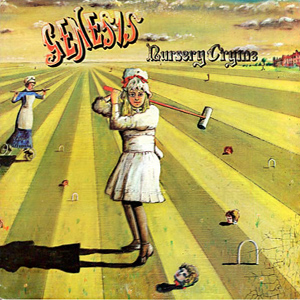
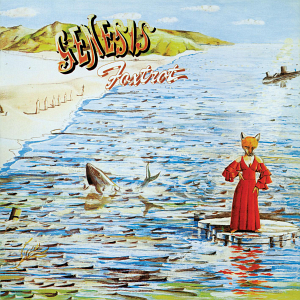

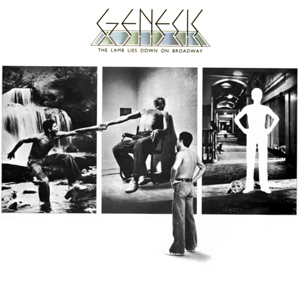
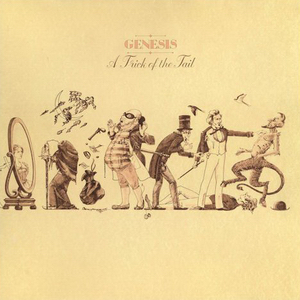




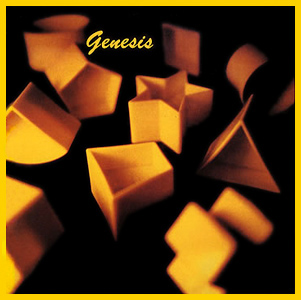

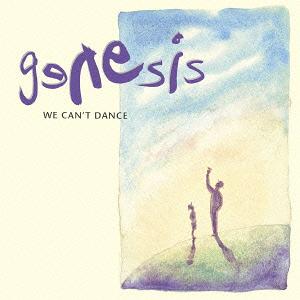



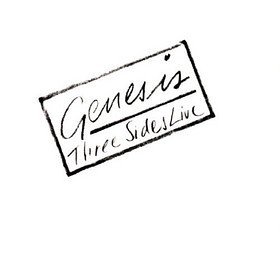
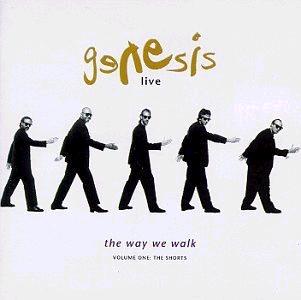

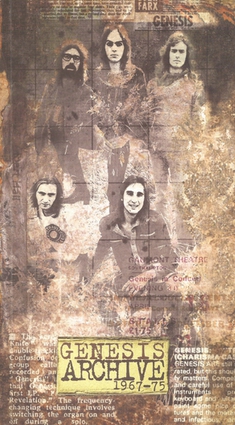
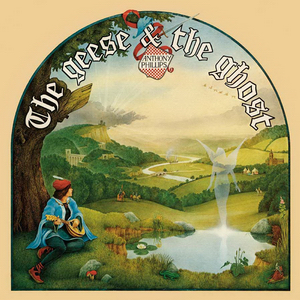
.jpg)
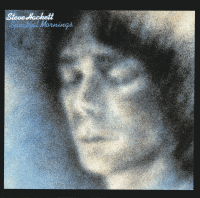

.jpg)

_Cropped.jpg/220px-Phil_Collins_-_Royal_Albert_Hall_-_Wednesday_7th_June_2017_PhilCollinsRAH070617-20_(35255872705)_Cropped.jpg)









